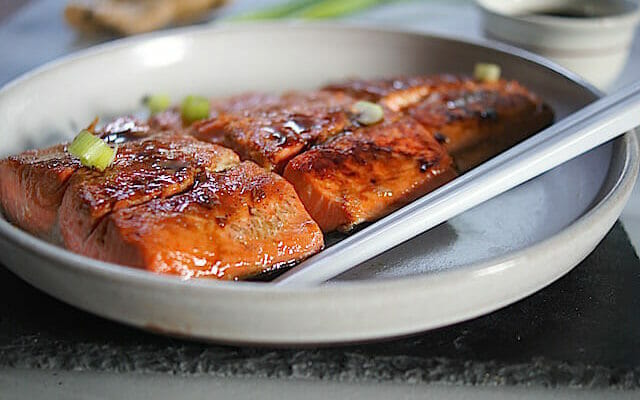5 Nutrition Tips from an Olympic Athlete

Whenever the Olympics roll around, I always find myself wondering what on earth the athletes eat all day to fuel that level of performance. Recently I had a chance to find out first hand when I interviewed Elizabeth Beisel, a superstar swimmer, two-time Olympic medalist, and a captain of the U.S. women’s Olympic team.
I was impressed with Beisel’s practical approach to eating. She doesn’t follow a special diet or have a personal nutrition coach. There are no magic potions, elixirs, or a list of what she can’t eat that runs a mile long. What she does have is a common sense take on fueling her body honed over 18 years of training that involves a nutrient-dense diet of whole foods. All that trial and error is worth borrowing, so I culled five tips suitable for anyone interested in fitness, whether you’re a competitive athlete or just a busy mom trying to keep out of elastic waist pants (hello, me).
5 Nutrition Tips from an Olympic Athlete
1. Eat Regular Meals and Snacks — Elizabeth trains for six to seven hours daily and stays in fighting shape by eating consistently throughout the day. She starts with a high calorie, high protein shake before her morning workout and then eats regular meals and snacks, ending with a balanced dinner of lean protein, such as salmon or chicken, a big salad, and a glass of milk.
Take Home Tip: Keep the tank fueled regularly to maintain energy and minimize the likelihood of a late-day binge. Too often, we rob our bodies of morning fuel and sometime even fly past lunch without eating, only to load up at the end of the day on (often) less nourishing choices.
2. Listen to your body –– This is a biggie for Elizabeth. She has learned through experience what works for her body, tuning into what she needs and when she thrives, and she listens to that.
Take Home Tip: Pay attention. So often we go into autopilot, eating mindlessly and not tuning into how a food or a meal impacts our body, mind, and energy level.
3. Hydrate — It’s especially easy for swimmers to underestimate how much water they need, since they don’t have the obvious perspiration of other athletes.
Take Home Tip: The same goes for a lot of us, who routinely forget to refill that water glass and lowball how much we should be drinking throughout the day (myself included).
4. Eat a recovery snack — “Have something within 15 minutes of finishing your workout,” recommends Beisel. “Your muscles are breaking down as you work out and they need to repair to be ready for the next day. They’re going to do that through diet.” Beisel’s go-to recovery snack is a carton of milk, which she keeps in a small fridge near the locker room so she can grab it as soon as training is done.
Take Home Tip: When it comes to sports, the focus is often on front-loading our workouts, but what we eat after we exercise can be just as important. And it doesn’t need to be a pricey sports drink or the latest protein bar. Regular food with quality carbohydrates and protein do the trick just fine.
5. Feed your body — Beisel says too often she sees women (and girls) training hard, but being so focused on weight, that they don’t take in adequate calories, which can backfire when it comes to performance.
Take Home Tip : This translates to regular folks, who can become so singularly focused on weight, we shortchange ourselves in terms of calories and good nutrition. Ultimately, that can alter a healthy metabolism and lead to a yoyo cycle that results in weight gain, not loss (not to mention that inadequate calories can impair how well your body and brain functions).
Just for fun I asked Beisel what she would eat if she wasn’t in training mode and really wanted to treat herself. “Nothing beats a slice of pizza made from a great local place” she said. “Oh, and good creamy ice cream for dessert.”
My kind of girl.
Good luck to her, and all the athletes in Rio.






Comments
11.16.2018 at7:52 AM #
Mery Nutrition diet plan
These are awesome tips, I am going to try your tips this week.Thanks for sharing.
11.16.2018 at8:07 AM #
Recovery for Athletes
Great post, I think if you are doing an endurance sport like running or triathlon, for recovery from training your focus should be on 4 parts carbohydrate to 1 part protein.